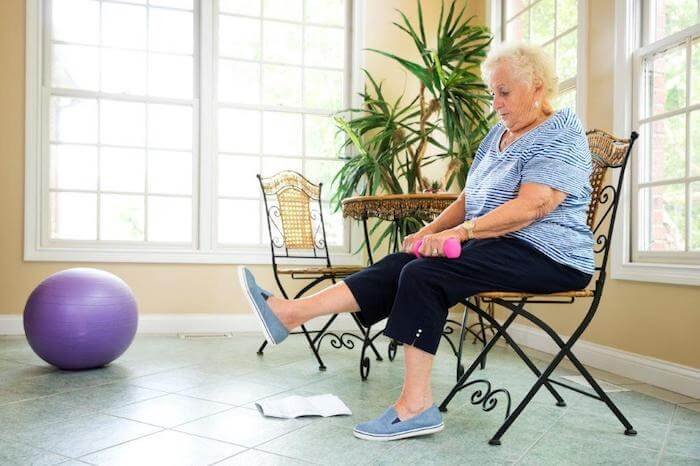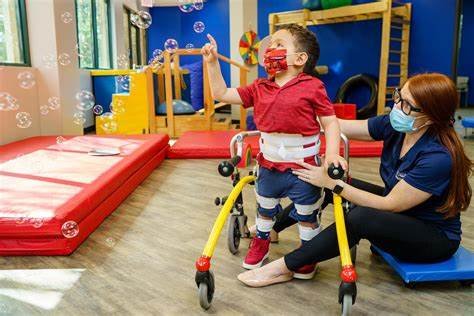When a loved one is going through rehabilitation, whether for an injury, surgery, addiction recovery, or mental health, your support can make a huge difference in their recovery process. Being there for them emotionally and physically can boost their morale, improve outcomes, and help them stay motivated. Here are some tips on how to support your loved one through rehabilitation.
1. Be Emotionally Supportive
Rehabilitation can be a challenging and emotional journey. Your loved one may feel frustrated, overwhelmed, or discouraged at times. Offer encouragement by being empathetic and patient. Listen to their concerns and provide a shoulder to lean on. Reassure them that setbacks are normal and part of the healing process.
Tips:
- Acknowledge their feelings without judgment.
- Celebrate small victories to boost their confidence.
- Avoid offering unsolicited advice; instead, ask how you can help.
2. Be Involved in the Rehabilitation Process
Being actively involved in the rehabilitation process shows your commitment to their recovery. Understand the type of rehabilitation they’re undergoing and the goals involved. Offer assistance by attending medical appointments, asking about progress, or helping with exercises if needed.
Tips:
- Offer to go to therapy sessions or meetings with them for moral support.
- Help track their progress by keeping a journal or checklist of their recovery milestones.
- Learn more about their specific rehabilitation needs so you can provide informed support.
3. Provide Practical Assistance
Rehabilitation often involves a lot of physical activity, medical appointments, and home exercises. Offering practical support can alleviate stress and help your loved one focus on healing.
Tips:
- Help with daily chores like cooking, cleaning, or grocery shopping if they are unable to do so.
- Transport them to and from appointments or therapy sessions.
- Assist with physical tasks like stretching or doing exercises at home, under professional guidance.
4. Encourage a Positive Mindset
A positive outlook can significantly impact the success of rehabilitation. Help your loved one stay optimistic about their progress by focusing on the small wins and encouraging a hopeful attitude. Remind them that recovery is a journey and there may be ups and downs.
Tips:
- Offer positive affirmations and praise their efforts.
- Remind them that progress may be slow, but it’s still progress.
- Keep conversations upbeat and centered around their strengths.
5. Be Patient and Give Them Space
Recovery can take time, and your loved one might not always be in the mood to talk or be social. Give them space when needed, but check in regularly to ensure they feel supported. Respect their privacy and allow them to process the recovery journey at their own pace.
Tips:
- Give them room to rest and recharge when necessary.
- Don’t push them to talk if they’re not ready.
- Let them have control over their own recovery as much as possible.

6. Help Maintain a Routine
Rehabilitation often involves creating new habits and sticking to a structured routine. Help your loved one establish a daily schedule for rehab exercises, rest, meals, and appointments. Consistency will help them feel more in control and support their recovery.
Tips:
- Create a daily or weekly schedule to keep track of appointments and tasks.
- Help them stay on track with their rehabilitation exercises by setting reminders.
- Be supportive if they need to adjust their routine based on how they’re feeling.
7. Encourage Socialization and Emotional Expression
Isolation can be common during rehabilitation, especially if your loved one is dealing with physical limitations or mental health challenges. Encourage social activities with family and friends that are in line with their current abilities. Additionally, support them in expressing their emotions in a healthy way.
Tips:
- Help them stay in touch with loved ones through phone calls, video chats, or visits, if possible.
- Encourage journaling or talking about their emotions if they seem down.
- Invite them to participate in low-impact social activities or hobbies that they enjoy.
8. Help Manage Expectations
Rehabilitation can sometimes be slower than anticipated, and your loved one may feel impatient or discouraged. Help them manage their expectations by reminding them that healing takes time. Support them in setting realistic goals and celebrate progress, no matter how small.
Tips:
- Set short-term and long-term goals together to make progress feel more achievable.
- Help them avoid comparing themselves to others who might be recovering at a faster pace.
- Be understanding if they experience setbacks and reinforce that it’s a normal part of recovery.
9. Promote Self-Care
Encourage your loved one to focus on self-care, including proper nutrition, hydration, and rest. Recovery isn’t just about physical healing; it’s also about emotional well-being. Help them create an environment conducive to self-care and relaxation.
Tips:
- Ensure they are eating a balanced diet to aid in recovery.
- Remind them to get enough sleep and relaxation time.
- Encourage mindfulness activities like meditation or deep breathing exercises for stress management.
10. Stay Informed and Educated
Rehabilitation can be complex, and the more you know about your loved one’s condition or treatment, the better you’ll be able to support them. Stay educated about their rehabilitation plan, whether it’s physical, emotional, or mental. Ask healthcare providers questions and be proactive in understanding the recovery process.
Tips:
- Attend medical appointments together and ask questions about the recovery plan.
- Research their condition and rehabilitation needs online or through books.
- Be patient if things don’t go as planned and support them with information and reassurance.
Conclusion
Supporting a loved one through rehabilitation requires patience, empathy, and active involvement. By offering emotional, practical, and physical support, you can help them feel encouraged and motivated throughout the recovery process. Your love and care can make a significant difference in their journey back to health, so be sure to stay positive and involved.











